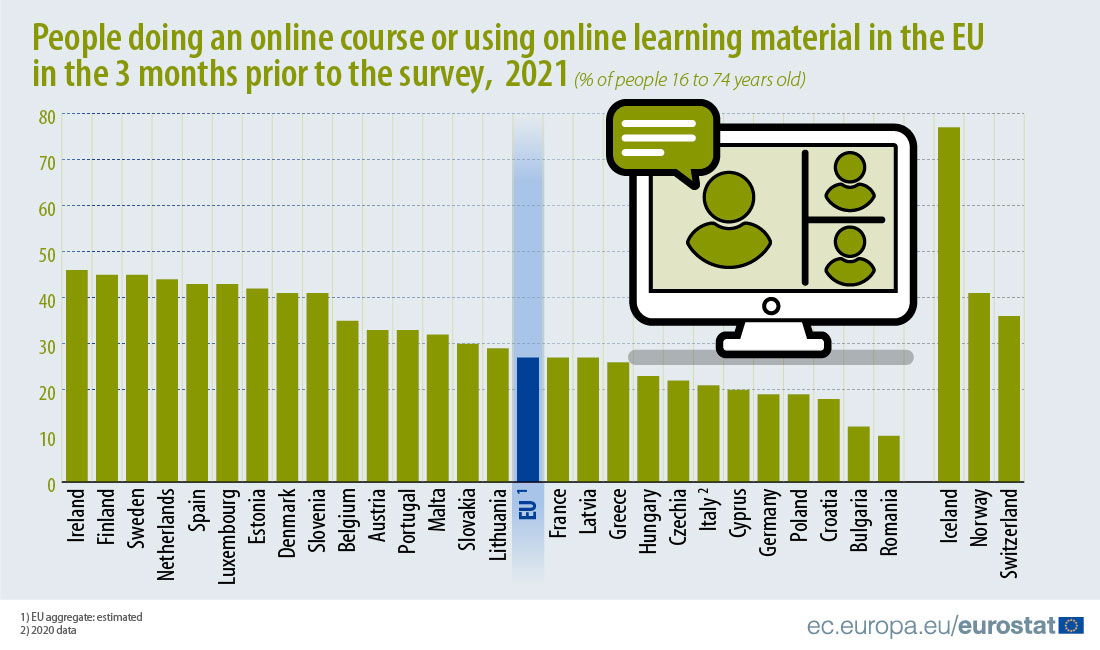ICT and Skills

date: 16/06/2022
According to Eurostat, in 2021, 54% of people in the EU aged 16 to 74 had “at least basic overall digital skills”, and 26% had “above basic overall digital skills”. Within the EU, both the Netherlands and Finland reported the highest share of “at least basic overall digital skills” with 79%. However, in the “above basic” the Netherlands performed better with a share of 52% vs. 48% for Finland. On the other hand, the lowest share was recorded in Romania (28%), followed by Bulgaria (31%) and Poland (43%). As for the “above basic overall digital skills”, Bulgaria was the lowest with only 8%, followed by Romania (9%) and Germany (19%).

For more information.
In terms of online education, according to Eurostat, in 2021, 27% of people aged 16 to 74 in the EU reported that they did an online course or used online learning material in the last three months prior to the survey, a 4 percentage points (pp) increase compared with 23% in 2020. Doing online courses is a convenient way to learn something new or to deepen your knowledge in a specific field, for example improving your language skills, expanding your professional qualifications or simply learning something new for fun.
Among the EU Member States, Ireland had the highest share with 46%, followed by Finland and Sweden (both 45%). At the other end of the scale, doing online courses or using online learning material was less common in Romania (10%), Bulgaria (12%), and Croatia (18%).
Compared with 2019 before the pandemic, the share of people doing online courses or using online learning material increased in all Member States, except for Romania where it decreased (-4pp) to 10%. Among the sharpest increases were the Netherlands (+21pp), followed by Luxembourg and Slovenia (both +19pp), and Greece (+18pp).

For more information.
